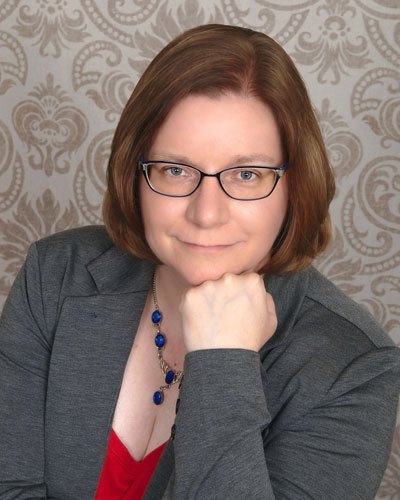I mostly write in different sub-genres of science fiction, fantasy, and horror. I occasionally do media tie-in work and have written stories for a Doctor Who anthology, a Shadowrun gaming anthology, an X-Files anthology, and a Hellraiser anthology. I’ve written some erotica, but I haven’t written any romance (some readers picked up my urban fantasy novels expecting them to be romances and were not prepared for all the demonic mayhem). My science fiction is also often fairly dark, and my horror is darker still.
I’ve written a fair bit of zombie fiction and other post-apocalyptic fiction; I also write Lovecraftian fiction, steampunk, arcanepunk, biopunk, weird westerns, alternate history, quiet horror, social science fiction … if I enjoy it as a reader, chances are I’ve written it.
When did you first realize you wanted to be a writer?
I wanted to become a writer pretty much from the moment I became an avid reader.
The United States Space & Rocket Center at the Redstone Arsenal in Huntsville, Alabama was a huge influence on me in terms of me becoming a speculative fiction reader. My father’s aunt and mother lived near it. Whenever we went to visit, they’d take me to the museum, and the notion of space travel caught my fancy and kept it. Once I was old enough to read anything of substance, I grabbed pretty much anything with a space ship or a fantastic creature on the cover that appeared on the school library’s shelves.
It was Madeline L’Engle’s A Wrinkle In Time that simultaneously hooked me as a lifelong science fiction/fantasy reader and fixed me on the idea of writing fantasy and SF instead of mainstream work. I remember that the book spoke to me in a way that nothing I’d read until then really had, and I had that shivery sense of wonder you get with really good speculative fiction. And I thought to myself that if I could write something that made another person feel the way I was feeling, then that would have to be the best job in the world.
What other authors are you friends with, and how have they helped you become a better writer?
At this point, I know a whole lot of other authors I've met at conventions and through social media. The person who helped me the most when I was starting out was Gary A. Braunbeck -- he helped me understand horror in a way that I hadn't before, and he gave me a lot of critical feedback on my stories to help make them better.
What’s the best way you've found to market your books?
Marketing is a moving target. What works well for one book won't necessarily work for another. That said, BookBub is an incredibly useful marketing tool, but they won't take every book that's submitted, so not everyone can use it.
What kind of research do you do, and how long do you spend researching before beginning a book?
I do as much research as necessary to understand the characters and world I'm creating. I don't have to understand everything right from the start, but there needs to be a basic foundation. The amount varies from story to story. If I'm writing a story based closely on my own experiences, I can probably dive right in. But if I'm writing technical hard SF that requires, say, figuring out planetary orbits and ecosystems, I'll be hitting the books for a while before I start the story.
Any last thoughts for our readers?
You can find my most recent stories in the anthologies Shadows Over Main Street, Vol. 2 (Cutting Block Books), Ride The Star Wind (Broken Eye Books), Hath No Fury (Ragnarok Publications), Looming Low (Dim Shores), and Behold! Oddities, Curiosities and Undefinable Wonders (Crystal Lake Publishing). You can also find my articles on using Kickstarter to crowdfund novels and using poetry techniques in writing flash fiction in the December and January issues of Writer's Digest.
Right now, all my income comes from my freelance writing, writing coaching, and adjunct teaching ... and the pay is wildly unpredictable. My husband is disabled due to a chronic pain condition called reflex sympathetic dystrophy/complex regional pain syndrome (RSD/CRPS), so I'm largely responsible for keeping our household afloat financially. And as a result of his disability, we have ongoing medical expenses that are sometimes difficult to manage.
So, I've set up a Patreon at https://www.patreon.com/LucyASnyder ... through it, patrons can receive poems, stories, and exclusive access to my novels in progress.
And if you're another writer? I want to help you, too. You can get a first look at my new writing articles. And if you like, I can give you a professional critique of your work each month to help you meet your own writing goals. Why get a critique? Aside from providing you with valuable feedback in improving your stories or chapters, knowing that I'll be expecting pages from you every month should give you extra motivation to write new work.
www.patreon.com/LucyASnyder
www.lucysnyder.com

 RSS Feed
RSS Feed